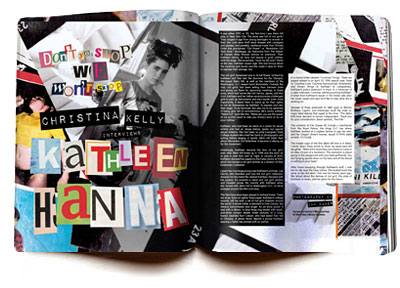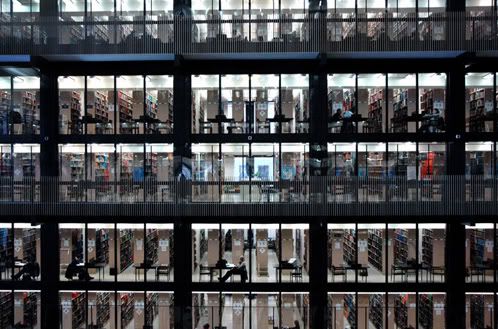We've tallied up the scores from the post-assessment questionnaire for Knowledge Exchange and here's how we compare:
Before Knowledge ExchangeThe questionnaire was taken by 34 staff and supervisors from Access Services.
Circulation, 6.12 familiarity rating, 47.6% correct
Delivery Services, 3.97 familiarity rating, 16.5% correct
Interlibrary Loan, 4.21 familiarity rating, 44.1% correct
Library Privileges, 5.79 familiarity rating, 84.7% correct
Reserves, 5.38 familiarity rating, 63.5% correct
Stacks, 5.81 familiarity rating, 67.6% correct
Fun Facts:
- The question most people answered correctly was “What is the shortest length of time someone can rent a locker for?”
- The question most people did not answer correctly was “What type of items can be requested through Delivery Services?”
After Knowledge ExchangeThe questionnaire was taken by 36 staff and supervisors from Access Services.
Circulation, 6.97 familiarity rating, 43.8% correct
Delivery Services, 5.5 familiarity rating, 30.4% correct
Interlibrary Loan, 5.86 familiarity rating, 37.3% correct
Library Privileges, 7.2 familiarity rating, 83.3% correct
Reserves, 6.7 familiarity rating, 71.1% correct
Stacks, 6.8 familiarity rating, 31.2% correct
Fun Facts:
- The question most people answered correctly was a tie between two questions:
"Yes or No, Can a NYU student who has forgotten their ID come into the library?"
"What is the shortest length of time for which someone can rent a locker?"
- The question most people did not answer correctly was:
"What is the fine limit that will cause a patron to have a University Registration hold?"
ConclusionsFamiliarity went up across the board. This shows people are more aware of what goes on in Access Services departments.
Familiarity Rating Chart

Delivery Services had the biggest gains in correct answers and Reserves also had a small increase. The percentages of correct answers for other departments curiously went down. This may have been due to the large number of post-assessments that were left blank (no answer was given for many questions).
% Correct Answers Chart Leave a comment: What do you think of the results?Questions and Correct AnswersCirculationHow many days does a patron have to return a recalled item before being charged a fine?Fourteen (or two weeks)What is the fine limit that will block a patron from borrowing materials?$5.00What is the fine limit that will cause a patron to have a University Registration hold?$60.00(A University Registration hold is a block on a patron's account that prevents them from registering for classes and from graduating)How many searches are conducted for a Claim Returned book?FiveHow many days after a Quick Search is placed will the Circulation Department conduct a check of the stacks for the missing item?The following day (or one day)Delivery ServicesWho can request materials to be paged and/or scanned?NYU FacultyNYU Abu Dhabi StaffNYU Abu Dhabi StudentsNYU Abu Dhabi FacultyNEW! Since the post-assessment, NYU PhDs and NYU TAs have been granted privilegesAlso, any NYU patron abroad (regardless of status) can request scans of NYU Bobst material if they use the Delivery Services options on the ILL request forms on the web.To which libraries can paged materials be physically delivered?BobstCourantISAW (Institute for the Study of the Ancient World)IFA (Institute of Fine Arts)Jack Brause (formerly Real Estate Institute)Abu DhabiWhat types of items can be requested through Delivery Services?Regularly circulating Bobst booksRegularly circulating Bobst Offsite booksRegularly circulating Courant booksMedia from the Avery Fisher CenterBook chapter/journal article scansOn average, how long does it take to ship items to Abu Dhabi?Three daysTo which libraries can Bobst and Courant items be returned?BobstCourantISAW (Institute for the Study of the Ancient World)IFA (Institute of Fine Arts)Jack Brause (formerly Real Estate Institute)Abu DhabiInterlibrary LoanWhat is the maximum number of times an Interlibrary Loan item can be renewed?Unless the item indicates NO RENEWALS, a patron can request a renewal online one time. They must contact the ILL office for subsequent renewals. All renewals are granted at the discretion of the lending library.True or False, Interlibrary Loan books can be renewed through the patron's BobCat account.False, patrons must go through their ILL account to renew ILL books.From the list below, please select the patron types that can use the ILL service at Bobst Library:a. NYU Employee Familyb. NYU Polytech Students & Facultyc. NYU Medical or Dental Students & Facultyd. New School Students & Facultye. NYU Law Students & Facultyf. NYU Abu Dhabi Students & FacultyNYU Polytech, NYU Medical, NYU Dental, and NYU Law all have ILL services through their home libraries, not Bobst.True or False, All Interlibrary Loan items are available for patrons to pick up at the Circulation Desk.False. "Library use only" items are kept at Avery Fisher Center, Reserves, and Fales.Which of the following is NOT a method that patrons can use to request Interlibrary Loan items?a. Through the library's websiteb. At the Circulation deskc. Through the BobCat catalogd. Through the Arch(The Arch is what the "Articles & Databases" section of the website is called.)Patrons cannot request Interlibrary Loan items at the Circulation Desk. Thttp://www.blogger.com/img/blank.gifhey can pick up ILL items there, but they cannot make requests there.Library PrivilegesYes or No, Can a NYU student who has forgotten their ID come into the library?YesYes or No, Can anyone purchase a membership to the library?Yes, unless they are on the "PNG" (persona non grata) listYes or No, Can the general public gain access to Bobst with a referral from the New York Public Library?Yes, with a METRO Title Referral CardWhat is the only kind of personal storage available in the library to undergraduates?LockersWhat is the shortest length of time for which someone can rent a locker?One semesterReservesWhich of the following is the correct list of current loan periods for materials held on reserve?a. 2-hour, 4-hour, 1-dayb. 2-hour, 4-hour, 3-dayc. 2-hour, 1-day, 3-dayd. 4-hour, 1-day, 2-dayTrue or False, Patrons can email scanned microfilms and fiche to themselves directly from the scanning machines.TrueTrue or False, The Reserved Department is responsible for the processing and re-shelving of the Leisure Reading collection located on Lower Level 2?TrueTrue or False, The Reserves Department loans out white board markers to patrons.TrueWhich of the following does the Reserves Department NOT house:a. Offsite "Library Use Only" materialsb. Interlibrary Loan "Library Use Only" materialsc. Avery Fisher Center Reserves materialsd. NYU Bookstore Course PacksStacksWhat roles do the full-time staff play in the stacks?Oversee assigned floormonitor work of part-time staffdelegate tasks to part-time staffWhat are the responsibilities of the stacks in general?Shelve booksStraighten and shelf-readFloor pick-upsHelp patronsShiftingWho should be notified about problems in the stacks? For example: loud disruptive staff, books out of order, patron needing help.Ted or PabloWhat are Ted's and Pablo's responsibilities?Ted: leads department projects, manages full-time staffPablo: manages part-time staff, deputy department leaderFrom where are stacks part-time staff recruited?Local high schools and NYU
Leave a comment: What do you think of the results?Questions and Correct AnswersCirculationHow many days does a patron have to return a recalled item before being charged a fine?Fourteen (or two weeks)What is the fine limit that will block a patron from borrowing materials?$5.00What is the fine limit that will cause a patron to have a University Registration hold?$60.00(A University Registration hold is a block on a patron's account that prevents them from registering for classes and from graduating)How many searches are conducted for a Claim Returned book?FiveHow many days after a Quick Search is placed will the Circulation Department conduct a check of the stacks for the missing item?The following day (or one day)Delivery ServicesWho can request materials to be paged and/or scanned?NYU FacultyNYU Abu Dhabi StaffNYU Abu Dhabi StudentsNYU Abu Dhabi FacultyNEW! Since the post-assessment, NYU PhDs and NYU TAs have been granted privilegesAlso, any NYU patron abroad (regardless of status) can request scans of NYU Bobst material if they use the Delivery Services options on the ILL request forms on the web.To which libraries can paged materials be physically delivered?BobstCourantISAW (Institute for the Study of the Ancient World)IFA (Institute of Fine Arts)Jack Brause (formerly Real Estate Institute)Abu DhabiWhat types of items can be requested through Delivery Services?Regularly circulating Bobst booksRegularly circulating Bobst Offsite booksRegularly circulating Courant booksMedia from the Avery Fisher CenterBook chapter/journal article scansOn average, how long does it take to ship items to Abu Dhabi?Three daysTo which libraries can Bobst and Courant items be returned?BobstCourantISAW (Institute for the Study of the Ancient World)IFA (Institute of Fine Arts)Jack Brause (formerly Real Estate Institute)Abu DhabiInterlibrary LoanWhat is the maximum number of times an Interlibrary Loan item can be renewed?Unless the item indicates NO RENEWALS, a patron can request a renewal online one time. They must contact the ILL office for subsequent renewals. All renewals are granted at the discretion of the lending library.True or False, Interlibrary Loan books can be renewed through the patron's BobCat account.False, patrons must go through their ILL account to renew ILL books.From the list below, please select the patron types that can use the ILL service at Bobst Library:a. NYU Employee Familyb. NYU Polytech Students & Facultyc. NYU Medical or Dental Students & Facultyd. New School Students & Facultye. NYU Law Students & Facultyf. NYU Abu Dhabi Students & FacultyNYU Polytech, NYU Medical, NYU Dental, and NYU Law all have ILL services through their home libraries, not Bobst.True or False, All Interlibrary Loan items are available for patrons to pick up at the Circulation Desk.False. "Library use only" items are kept at Avery Fisher Center, Reserves, and Fales.Which of the following is NOT a method that patrons can use to request Interlibrary Loan items?a. Through the library's websiteb. At the Circulation deskc. Through the BobCat catalogd. Through the Arch(The Arch is what the "Articles & Databases" section of the website is called.)Patrons cannot request Interlibrary Loan items at the Circulation Desk. Thttp://www.blogger.com/img/blank.gifhey can pick up ILL items there, but they cannot make requests there.Library PrivilegesYes or No, Can a NYU student who has forgotten their ID come into the library?YesYes or No, Can anyone purchase a membership to the library?Yes, unless they are on the "PNG" (persona non grata) listYes or No, Can the general public gain access to Bobst with a referral from the New York Public Library?Yes, with a METRO Title Referral CardWhat is the only kind of personal storage available in the library to undergraduates?LockersWhat is the shortest length of time for which someone can rent a locker?One semesterReservesWhich of the following is the correct list of current loan periods for materials held on reserve?a. 2-hour, 4-hour, 1-dayb. 2-hour, 4-hour, 3-dayc. 2-hour, 1-day, 3-dayd. 4-hour, 1-day, 2-dayTrue or False, Patrons can email scanned microfilms and fiche to themselves directly from the scanning machines.TrueTrue or False, The Reserved Department is responsible for the processing and re-shelving of the Leisure Reading collection located on Lower Level 2?TrueTrue or False, The Reserves Department loans out white board markers to patrons.TrueWhich of the following does the Reserves Department NOT house:a. Offsite "Library Use Only" materialsb. Interlibrary Loan "Library Use Only" materialsc. Avery Fisher Center Reserves materialsd. NYU Bookstore Course PacksStacksWhat roles do the full-time staff play in the stacks?Oversee assigned floormonitor work of part-time staffdelegate tasks to part-time staffWhat are the responsibilities of the stacks in general?Shelve booksStraighten and shelf-readFloor pick-upsHelp patronsShiftingWho should be notified about problems in the stacks? For example: loud disruptive staff, books out of order, patron needing help.Ted or PabloWhat are Ted's and Pablo's responsibilities?Ted: leads department projects, manages full-time staffPablo: manages part-time staff, deputy department leaderFrom where are stacks part-time staff recruited?Local high schools and NYU






















